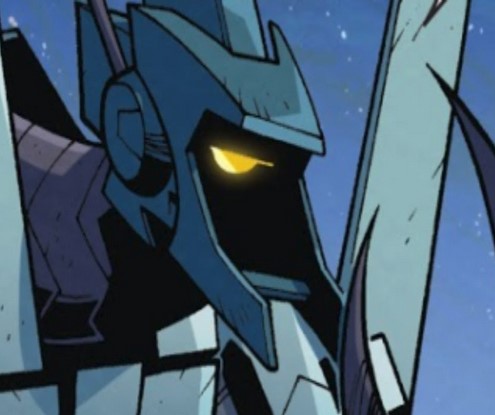Don’t get me wrong. I’ve played roguelikes. I’ve enjoyed roguelikes. But I think I can safely say that for every single roguelike I’ve played, I would’ve had a lot more fun if it kept the basic mechanics but were something other than a roguelike.
To me, at least, random chance + limiting the player’s information + permadeath is one of the most horrid combinations of mechanics imaginable. The sky-high difficulty of most roguelikes all but demands the player make near-perfect decisions at all times… except, with the limitation of the player’s ability to see e.g. what’s in the next room, the player can make an educated guess at best. “Do you pick the room that has a 70% chance of being the best choice or the one that has a 30% chance of being the best choice?” The 70% room is objectively the correct choice, but even if the player knows the game well enough to know which room is the 70% room and pick it every time, they’re still eating shit an average of 30% of the time, and that’s generally enough to cost a run.
Of course, that’s not even the worst way the RNG can fuck over the player. A run may very well be doomed before it starts. I remember reading that for one old roguelike - ADOM, I think it was - the very best players in the world could manage about a 50% win rate. Think about that. Even at the absolute peak of human skill, half of all runs are total wastes. The outcome was already decided. There was no point in even starting the game. The whole thing was an exercise in futility that you were roped into with the carrot that maybe it would actually be winnable. That’s more akin to an elaborate joke than a legitimate game.
It’s even worse in roguelike deckbuilders, I think. Obviously, you need good deck synergy to win. It’s not usually difficult to figure out which cards work well together. The issue, though, is finding those cards. Early in the game, you’ll hit a point where you’re committed to whatever deck theme you decided to go with - switching would be so costly that it would essentially guarantee a loss. What happens when the game suddenly decides to stop giving you the cards you need? You lose. How do you know which kinds of card you’ll be getting? You can’t. So, pick a theme. There are right and wrong answers, but the game won’t give you any indication as to which is which. You’ll get your answer when you’re staring at an imminent loss and realizing that every ingame choice you made in the last half hour was made completely irrelevant by what you did in the ten minutes prior to that.
I love em but I’d never want every game to be one.
try RogueLites.
In all seriousness, Risk of Rain does it pretty well. It’s pseudo-random and even if you lose you will probably acquire cool new junk for next time.
I absolutely love classic roguelikes. I didn’t love ADOM despite playing it a fair amount, but I do love DCSS, Caves of Qud, Cogmind, Cataclysm, and quite a few more, albeit to a lesser degree. I love games that demand you learn their systems inside and out to even have a chance at winning. I love the sense of stakes that roguelikes create and the experiences that emerge from the fear of losing everything. I also generally tend to be quite critical of heavy RNG elements in roguelikes and I fucking hate deckbuilder games in general, but I like having to measure and mitigate the risk of unexpected and unfavorable situations on the fly and come up with impromptu solutions to interesting problems. Loss is expected, and while you can learn from loss, sometimes you’re left feeling like the cards just weren’t in your favour, and I think that’s something that a lot of people who play these kinds of games just come to accept. A lot of people see it as senseless masochism, but in my experience with the games I’ve listed above, losing can genuinely be fun. There is a sense of loss, but these games to me are also in part story generators. I’ve had many experiences in all of them that I remember very fondly, and a lot of those stories end with loss.
My particular fixation with them might be because of autism though. I have well over a thousand hours in several (probably multiple thousand in Cata) and tend to come back to them for comfort, so I probably just really like bad games
sometimes you’re left feeling like the cards just weren’t in your favour, and I think that’s something that a lot of people who play these kinds of games just come to accept.
This is the part I can’t get past. I can accept inevitable loss in something like an arcade game, where the premise of “you’ll lose eventually, just do as well as you can” is baked into the gameplay and there is no real win state. But if a game does provide a win state, then I think that carries with it the implicit promise that the win state is reachable if the player demonstrates sufficient skill.
To me, this tendency in roguelikes is equivalent to, say, playing a Legend of Zelda game and having a random chance that a progression-critical item or key will be missing, softlocking the player and forcing them to start a new game. Would it be easy to implement? Yes. Could I still enjoy such a game, in spite of such a feature? Probably. Would my opinion of the game be in any way improved by having it behave this way? Absolutely not.
But if a game does provide a win state, then I think that carries with it the implicit promise that the win state is reachable if the player demonstrates sufficient skill.
Almost all rougeliktes I’ve ever played, did that. An actual inevitable fail state is very very rare. It’s always about juggling odds, making decisions, balancing risks and very rarely does one play optimal. The challenge is that the difficulty curve can be all over the place. This monster was easy to beat, but you don’t know if the next one is the run killer.
Slay the Spire feels like a unforgiving game if you don’t get your good cards and relics at Ascension 1. Except of course that the best players can beat Ascension 20 (about 5 times harder I’d say) with 50+% consistency and would almost never fail at low difficulties.
DCSS is full of random bullshit, getting shafted, out of depth monsters, bad loot etc. Yet people have insane winstreaks on even weak combinations.
Listening to a good commentated run by a highly skilled player always reset my perspective on everything I thought was bullshit or inevitable. I am the problem and I can solve it by improving.
half baked thought but like yeah the rng slot gamey side of roguelikes is probably scratching the same gamer urge as lootboxes/skinnerboxes
I’ve played slot machines before and it really does have a similar feeling. “Just one more pull of the lever, maybe I’ll win this one” except every pull of the lever takes half an hour and instead of my money it’s my time I grow increasingly desperate to not have pissed away. Sunk cost fallacy keeps me playing long after any fun has worn away.
I know that feel. Somewhere along the line, I got into various Rogue-inspired games, and I’ve found that there’s a sliding scale of punishing difficulty and sense of accomplishment. Some people like a lot of the former before indulging in the latter, while people like me like a steady mix of both.
I found stuff like Rogue Legacy and Hades are near the point where both curves intersect for me - constantly rolling the dice and sometimes giving you the short end, but a quick game cycle and you always make at least some progress with each failure.
I’ve had a bit of fun with deckbuilders at the low end, but got bored and frustrated as soon as I went into competitive play - it’s either P2W or there are a limited number of viable options so it just becomes playing the meta.
i gotta get into caves of qud
It’s incredible, and actually rather easy once you learn the mechanics, which is the hard part. So many ways to break the game and be an OP walking cybernetic God-bear
A “Roguelike” or “Roguelite” tag on a game is not an instant “no” from me but it sure doesn’t help.







